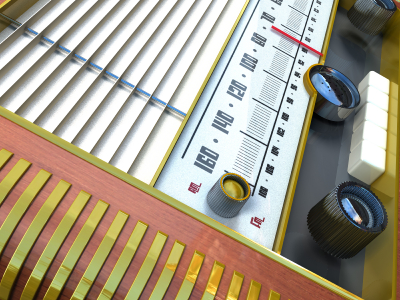This is the first part in a series called “Audience Building.” Travel with me as we explore how and why the big names in broadcast, print, cinema, and theatre can attract and attain such massive and devout followings. What are they doing to get millions of views and followers? How can we apply that to our own personal and business brands, micro niches, blogs, podcasts, and social media pages? There is a fine art to crafting strong and meaningful audiences and communities. What works so well in the “old media” formats and how can we apply that to the new media? What are some of the failures of the old media and what can we avoid? Ok, enough of the intro. Let’s begin.
Talk Radio Tips
Talk radio could be viewed as the original “blogger” format. It combines current events, culture, entertainment, opinion, special interests, and hobbies with a real time, two way conversation. All at the flip of a dial! What more could you want? Sounds like social media to me. So much can be gleaned from the phenomenal success of talk radio- even in an age of cable tv overload, home entertainment, video games, and internet media dominance.
Nurturing the Community
Almost every successful brand, be it personal or corporate, has carved out a niche around helping individuals or groups solve problems. Fundamentally, that’s what businesses do. In radio and in other live broadcast mediums the host and the listening community work together to tackle the issues of the day. I’ve noticed that, within this sphere, there is present, a real desire to be mutually heard. The audience is encouraged to call in and give their opinions. Callers comment on other callers. The host brings in opposing view points and lively discussions build and play themselves out for all to hear. Staunch view points are challenged and arguments ensue. It’s a situation in which the host sparks the debate, the callers chime and the audience listens. This format works because we all want to be understood and to be heard.
Audience Participation
Get people thinking. Post on controversial or difficult subjects that stimulate dialogue. Join other bloggers in on the conversation and link them in. As bloggers we need to get our audiences engaged and motivate them to actually want to talk back. You can’t force anyone to comment. First and foremost, your content has to be stimulating enough to warrent a response, but secondly, you need to ask for the feedback. Make sure to place questions in your posts like:
What other opinions do you have?
Am I way off base here?
What do you think?
How can I say it any better?
What more would you like to add?
Encourage readers to comment in other ways like:
Tell me what you think.
I need some more ideas on this subject.
Let me know if you disagree here.
Please comment. Feedback appreciated!
Instant Feedback
Live radio has a one second delay from caller to host and back again. That’s pretty fast. Try to emulate that quick response and instant feedback. It’s not that you have to sit and wait by your computer and jump on any comment instantly, but never leave a comment or question hanging for too long. Always get back to your audience as soon as you can. You will discourage and frustrate otherwise. This is especially true for fledgling blogs. Nothing kills momentum more than a one way conversation.
Summation
Understand the needs and problems of your audience so that you can be the one to provide those valuable solutions in a fun and entertaining way. Work to foster a strong community through stimulating ideas, sparking conversations and working together to solve problems and improve lives. This builds trust and value in your content and keeps your audience coming back for more. Make yourself visible and available consistently. Nobody wants to be talked to and never heard. As your audience grows, you will need to put systems in place to respond and answer the needs and concerns of your fans, and friends.
Let’s get this conversation going. What do you think? Is this material pretty much common sense stuff anyway? How do you think bloggers can learn from talk radio? Do you really think live talk radio is the original electronic social media?



